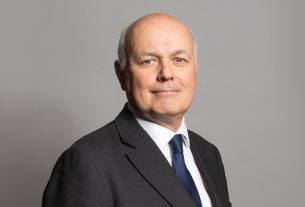Elon Musk and X have reached a settlement with a group of former Twitter executives regarding $128 million in severance payments they claimed were withheld following Musk’s acquisition of the company in 2022. The executives, including former CEO Parag Agrawal, former CFO Ned Segal, former Chief Legal Officer Vijaya Gadde, and former General Counsel Sean Edgett, had filed a lawsuit in 2024 alleging that Musk intentionally delayed or refused severance as a form of retaliation after completing the $44 billion takeover.
All of the executives were terminated shortly after Musk assumed control of Twitter in October 2022. Their dismissals occurred just one day before they were due to receive a combined $200 million in severance and vested stock options. According to the lawsuit, Musk’s actions were motivated by frustration over having to finalize the acquisition and his belief that Twitter’s prior management had misled him.
A court order issued on October 1 by the U.S. Northern District Court of California confirms that a settlement has been reached. The order does not specify the terms, but it does postpone depositions—including Musk’s—that were scheduled for the end of October, allowing the parties to complete the conditions outlined in the agreement.
Reports indicate that portions of Walter Isaacson’s authorized biography of Musk, published in 2023, were cited in the lawsuit. The book recounts that Musk sought to prevent the executives from receiving severance or stock option payouts due to the high acquisition cost and his perception that the previous management had misrepresented the company’s value. The biography suggests that Musk expedited the closing of the Twitter deal in order to terminate executives “for cause,” a justification that the lawsuit argues was unfounded.
Representatives for both Musk and the former executives, as well as X, did not immediately respond to requests for comment.
This settlement follows a similar agreement reached in August between Musk, X, and another group of former Twitter employees. That case also involved claims for unpaid severance, highlighting ongoing disputes over executive compensation and benefits following Musk’s high-profile acquisition of the platform.
The lawsuit and subsequent settlement underscore the tensions and legal complexities surrounding the Twitter acquisition. Musk’s management style, which has often been described as aggressive and unorthodox, combined with rapid structural changes after the takeover, contributed to multiple legal challenges from former employees. By settling, Musk and X appear to have sought a resolution without prolonged court proceedings that could further draw public attention and scrutiny to executive severance practices.
The agreement also illustrates the broader challenges tech companies face during mergers and acquisitions, particularly in high-stakes deals involving billions of dollars and executive compensation packages. Disputes over severance and stock options are common, especially when there are abrupt leadership changes and contested contractual interpretations.
While the settlement terms remain confidential, the resolution allows both sides to avoid a potentially contentious deposition process, including testimony from Musk himself. For the former executives, the settlement likely provides some financial compensation for the severance and stock options initially denied. For Musk and X, it removes the uncertainty and potential reputational impact of a drawn-out court battle.
The episode serves as a reminder of the complexities inherent in major corporate acquisitions and the legal risks that accompany executive terminations, particularly in the tech industry where leadership transitions can occur abruptly and at scale.




